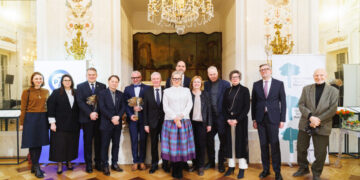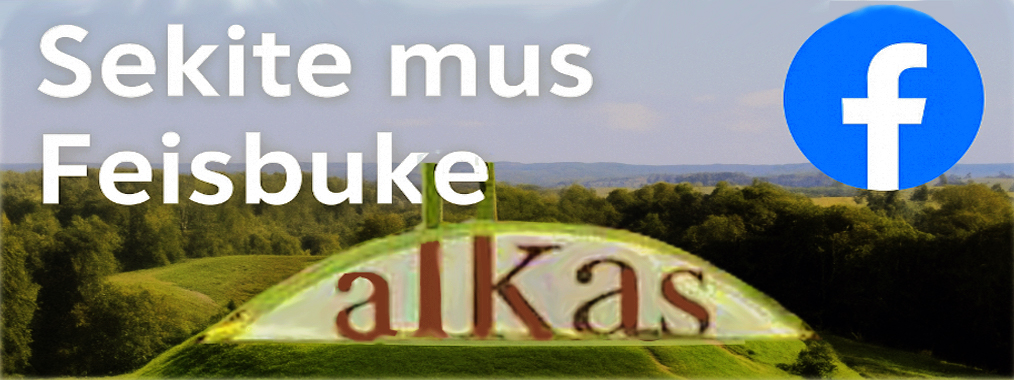
Klaipėdos miesto meras Vytautas Grubliauskas rugpjūčio 26 dieną kreipėsi į Klaipėdos miesto savivaldybės tarybos Etikos komisiją su prašymu išnagrinėti, ar vieši Klaipėdos miesto savivaldybės tarybos nario Viačeslav Titov pasisakymai nediskredituoja Klaipėdos miesto savivaldybės tarybos vardo ir įvertinti galimai neetišką V. Titovo elgesį.
Kreiptis į Etikos komisiją meras V. Grubliauskas nusprendė po to, kai žiniasklaida išplatino V. Titov išsakytus žodžius Lietuvos Respublikos adresu: „Jei iš valstybės ištremia žmones, kurie kovoja su fažizmu, nacizmu, vadinasi, tokia valstybė yra fašistinė“ (naujienų portalo „Delfi“ publikacija „Nepageidaujamų Lietuvoje svečių prisikvietęs Klaipėdos valdžios atstovas: Lietuva – fašistinė valstybė“).
Tokius žodžius jis pasakė po to, kai iš Lietuvos buvo išprašyti specialiai į forumą vykę trys Latvijos piliečiai. Tai vienas iš aktyviausių vadinamojo „Latvijos antifašistinio komiteto“ narių Josifas Korenas, europarlamentarės Tatjanos Ždanokos padėjėjas Aleksandras Kuzminas ir istorikas Aleksandras Ržavinis, praneša LRT TV naujienų tarnyba.
Klaipėdos miesto meras taip pat svarsto galymybę kreiptis ir į LR Vyriausiąją rinkimų komisiją su prašymu išnagrinėti, ar Tarybos narys savo viešais pasisakymais galimai nepažeidė duotos Tarybos nario priesaikos.
























Už tokias kalbas dera iškelti bylą ir uždaryti į kalėjimą.
Nuvežt prie vs keliu šiknon ir zarubežom .
Kiek žinau, tai V.Grubliausko rūpesčiu buvo uždaryti rasiejiniai propagandos portalai left ru, pokaris info, komunizmas org.
V.Grubliauskas, jei taptų Lietuvos valdžia, tai, manau, žymiai geriau eitųsi įvesti tvarką ir suriktinti visokius pederastus, žydomasonus, lenkomanus bei rasiejinius. Jis turi didelę šeimą ir yra Lietuvos žmogus: labai mandagus, yra tekę su juo kelis metus diskutuoti, kada buvo seimo narys, bet padarys ką reikia tai tikrai.
Pats meras taip pat yra prorusiškas. lyvis
Visai ne.
Tai ko tada sudarė koaliciją su tomaševskininkais. lyvis
Iš kur tomaševskininkai Klaipėdoje?
Ko tu to savo draugo nepaklausi kodėl susidėjo su tomaševskininkais. lyvis
Tai, kad Klaipėdoje jų nėra – ar nemoki skaityti?
Jų nėra tavo marksistinėje galvoje, bet ne Klaipėdoje. lyvis
Liankai ne Klaipėdoje, tavo žiniai.
Nežinojai? 🙂
Skaityk: Darbą pradėjusi Klaipėdos miesto savivaldybės taryba išsiskiria unikalia valdančiųjų koalicijos sudėtimi. Klaipėdos Lietuvos liberalų sąjūdžio atstovai nusprendė sudaryti koaliciją su Lietuvos lenkų rinkimų akcijos (LLRA) ir Rusų aljanso bloku.
Skaitykite daugiau: http://www.delfi.lt/news/ringas/politics/a-bilotaite-liberalams-valdzios-reikia-siandien-nacionalinis-saugumas-palauks.d?id=67786038
„Puteikis plius“ nariai jau pirmajame miesto tarybos posėdyje sulaukė dėmesio ir žvilgsnių, nes „pasipuošė“ respiratoriais. „Tai – simbolinis ženklas, parodantis, jog valdančioji koalicija skleidžia negerą kvapą, nes joje dirba Lenkų rinkimų akcijos ir Rusų aljanso koalicijos „Valdemaro Tomaševskio blokas“ – atvirai antivalstybine jėga, kurią, kaip vieną iš grėsmių nacionaliniam saugumui, savo ataskaitoje nurodė Valstybės saugumo departamentas. Tokia koalicijos sutartis yra tarsi spjūvis klaipėdiečiams į veidą, nes ji pavojinga Klaipėdai. Kadangi uostamiesčio ūkinių problemų sprendimas dažnai susijęs su strateginių visai šaliai objektų veikla, Tomaševskio blokas čia tikrai ne – geriausias patarėjas“, – įsitikinusi visuomeninio komiteto „Puteikis plius“ frakcijos seniūnė Nina Puteikienė.
Skaitykite daugiau: http://www.delfi.lt/news/daily/lithuania/pirmajame-klaipedos-miesto-tarybos-posedyje-vos-neivyko-perversmas.d?id=67718630
Čia jau ne liankai – čia jau koloradų blokas.
Nemaišykim.
Visa tai lengvai galima pataisyti, uždraudus visokias “tautines” partijas. nes Lietuvoje nėra jokių kitų tautų, išskyrus lietuvius.
O kitakilmiai, kitakultūriai ar kitakalbiai yra ne atskiros tautos, o dėl Lietuvos valdžios apsileidimo dar nepriversti sulietuvėti Lietuvos piliečiai, kuriems dera iškelti tokius reikalavimus: neišmoksti lietuvių kalbos – būsi išpilietintas.
O jei išmokai, tai kokie čia dar liankų, “rusų” susivienimai gali būti, jei nedirbi kitoms šalims ir prieš Lietuvą?
Tavo draugas Grubliauskas yra prorusiškas matyt kaip ir tu. lyvis
Klausai, o gal nebegirdi ausimis: skirk tomaševskininkus nuo koloradų.
Kad ir pats nieko nesiskiri nuop jų. Daug žinai bet nieko neišmanai.lyvis
Jei daug išmanai :), tai kodėl gi to neparodai? 🙂
Jeigu „Lietuva – fašistinė valstybė“, tai kokia valstybė tada yra Rusija? 😉
Praktiskai manau, kad tas zmogelis ne nezino kas yra fasizmas. O kaip su tokiu elgtis. Labai paprastai…. visisiskai visuose lygiuose ignoruoti, nesisveikinti ir nekalbeti. Kaip su tuscia vieta. Manau, kad tam zmogeliui labiau tiktu vadintis didziarusisku fasistu, o ne titov.
Nesutinku – jo kalbos yra Lietuvos valstybės šmeižimas, o tai turi būti baudžiama.
Tuo labiau, kad tai buvo maskolinė akcija: http://www.15min.lt/naujiena/aktualu/lietuva/i-lietuva-neileisti-veikejai-is-latvijos-dziaugiasi-sraunia-kremliaus-pinigu-upe-56-524384
Pone Jonai, taip iškilmingai save pristatąs – būkit malonus ir rašykite LIETUVIŠKAI. Ten , kompo monitoriaus – vaizduoklio – apačioje, dešinėj, apačioj ,yra langeliai – LT, EN, RU.
Kažkaip ne visai gražiai, beveik kvailai, netgi durnai, o jei visai atvirai, tai IDIOTIŠKAI atrodo Jūsų, daktare Jonai Ramanauskai, postringavimai bei pamokymai…
Nuoširdžiai 🙂
Na, aš nevadinsiu Joną lenku (ponu), bet Juozas ,Tamstai, dūrė taikliai. O “dr.” prieš Joną R. tai draugą reiškia ar kitaip?
Trumpinys „dr“. – reiškia daktarą (baigusį doktorantūros studijas), ne draugą (trumpinys – drg. 😀 ).
veterinaras
Kadangi su dr neteko kiaulių ganyti, tai ir kreipiausi taip… Visada maniau, kad prie vardo rašomas/sakomas “ponas”. Kaune net sovietmečiu taip kreipdavomės į kaimyną ar nepažįstamą, aiškiai ne valdžios atstovą (ypač uniformuotą 🙂 )
O šis anekdotas buvo populiarus tada, kai “kura ne ptica, Polša ne zagranica” buvo:
-Ktora godzina, pani ku…wo?
-Po do drugiej, pan ubogy.
Ypač mėgo jį tovariščiai komsomolcai 🙂
Jonai, šis žmogelis titov yra bolševizmo – stalinizmo auka. lyvis
Ne auka, o maskolių agentas.
Nes į jų dūdą pučia.
Dera uždrausti “tautines” partijas ir tokių veikėjų politikoje nebeliks.
Kažkoks protingas žmogus yra pastebėjes, kad vienintelis skirtumas tarp fašizmo ir demokratijos yra tas, kad demokratija suteikia erdvesnę kalėjimo kamerą ir ilgesnę grandinę prie kojos.
Kitas protingas žmogus, toks Lawrence Britt, 2003 metais išleido knygą “Fascism Anyone?”, kur pateikė 14 fašizmą apibūdinančių punktų. Štai jie (tingiu verst):
1. Powerful and Continuing Nationalism
Fascist regimes tend to make constant use of patriotic mottos, slogans, symbols, songs, and other paraphernalia. Flags are seen everywhere, as are flag symbols on clothing and in public displays.
2.Disdain for the Recognition of Human Rights
Because of fear of enemies and the need for security, the people in fascist regimes are persuaded that human rights can be ignored in certain cases because of “need.” The people tend to look the other way or even approve of torture, summary executions, assassinations, long incarcerations of prisoners, etc.
3.Identification of Enemies/Scapegoats as a Unifying Cause
The people are rallied into a unifying patriotic frenzy over the need to eliminate a perceived common threat or foe: racial , ethnic or religious minorities; liberals; communists; socialists, terrorists, etc.
4.Supremacy of the Military
Even when there are widespread domestic problems, the military is given a disproportionate amount of government funding, and the domestic agenda is neglected. Soldiers and military service are glamorized.
5.Rampant Sexism
The governments of fascist nations tend to be almost exclusively male-dominated. Under fascist regimes, traditional gender roles are made more rigid. Opposition to abortion is high, as is homophobia and anti-gay legislation and national policy.
6.Controlled Mass Media
Sometimes to media is directly controlled by the government, but in other cases, the media is indirectly controlled by government regulation, or sympathetic media spokespeople and executives. Censorship, especially in war time, is very common.
7.Obsession with National Security
Fear is used as a motivational tool by the government over the masses.
8.Religion and Government are Intertwined
Governments in fascist nations tend to use the most common religion in the nation as a tool to manipulate public opinion. Religious rhetoric and terminology is common from government leaders, even when the major tenets of the religion are diametrically opposed to the government’s policies or actions.
9.Corporate Power is Protected
The industrial and business aristocracy of a fascist nation often are the ones who put the government leaders into power, creating a mutually beneficial business/government relationship and power elite.
10.Labor Power is Suppressed
Because the organizing power of labor is the only real threat to a fascist government, labor unions are either eliminated entirely, or are severely suppressed .
11.Disdain for Intellectuals and the Arts
Fascist nations tend to promote and tolerate open hostility to higher education, and academia. It is not uncommon for professors and other academics to be censored or even arrested. Free expression in the arts is openly attacked, and governments often refuse to fund the arts.
12.Obsession with Crime and Punishment
Under fascist regimes, the police are given almost limitless power to enforce laws. The people are often willing to overlook police abuses and even forego civil liberties in the name of patriotism. There is often a national police force with virtually unlimited power in fascist nations.
13.Rampant Cronyism and Corruption
Fascist regimes almost always are governed by groups of friends and associates who appoint each other to government positions and use governmental power and authority to protect their friends from accountability. It is not uncommon in fascist regimes for national resources and even treasures to be appropriated or even outright stolen by government leaders.
14.Fraudulent Elections
Sometimes elections in fascist nations are a complete sham. Other times elections are manipulated by smear campaigns against or even assassination of opposition candidates, use of legislation to control voting numbers or political district boundaries, and manipulation of the media. Fascist nations also typically use their judiciaries to manipulate or control elections.
Kiekvienas turintis bent kiek proto žmogus supras, kad Lietuva ir fašizmas nėra jau taip ir toli, kaip kai kuriems atrodo.
Dar kitas protingas žmogus, Umbert Eco, 1995 metais išleistoje esė apibūdino fašizmą taip (vėl tingiu verst kaimiečiams, vistiek mekens, kad rusų propaganda):
1.The first feature of Ur-Fascism is the cult of tradition.
Traditionalism is of course much older than fascism. Not only was it typical of counterrevolutionary Catholic thought after the French revolution, but is was born in the late Hellenistic era, as a reaction to classical Greek rationalism. In the Mediterranean basin, people of different religions (most of the faiths indulgently accepted by the Roman pantheon) started dreaming of a revelation received at the dawn of human history. This revelation, according to the traditionalist mystique, had remained for a long time concealed under the veil of forgotten languages — in Egyptian hieroglyphs, in the Celtic runes, in the scrolls of the little-known religions of Asia.
This new culture had to be syncretistic. Syncretism is not only, as the dictionary says, “the combination of different forms of belief or practice;” such a combination must tolerate contradictions. Each of the original messages contains a sliver of wisdom, and although they seem to say different or incompatible things, they all are nevertheless alluding, allegorically, to the same primeval truth.
As a consequence, there can be no advancement of learning. Truth already has been spelled out once and for all, and we can only keep interpreting its obscure message.
2. Traditionalism implies the rejection of modernism.
Both Fascists and Nazis worshipped technology, while traditionalist thinkers usually reject it as a negation of traditional spiritual values. However, even though Nazism was proud of its industrial achievements, its praise of modernism was only the surface of an ideology based upon blood and earth (Blut und Boden). The rejection of the modern world was disguised as a rebuttal of the capitalistic way of life. The Enlightenment, the Age of Reason, is seen as the beginning of modern depravity. In this sense Ur-Fascism can be defined as irrationalism.
3. Irrationalism also depends on the cult of action for action’s sake.
Action being beautiful in itself, it must be taken before, or without, reflection. Thinking is a form of emasculation. Therefore culture is suspect insofar as it is identified with critical attitudes. Distrust of the intellectual world has always been a symptom of Ur-Fascism, from Hermann Goering’s fondness for a phrase from a Hanns Johst play (“When I hear the word ‘culture’ I reach for my gun”) to the frequent use of such expressions as “degenerate intellectuals,” “eggheads,” “effete snobs,” and “universities are nests of reds.” The official Fascist intellectuals were mainly engaged in attacking modern culture and the liberal intelligentsia for having betrayed traditional values.
4. The critical spirit makes distinctions, and to distinguish is a sign of modernism.
In modern culture the scientific community praises disagreement as a way to improve knowledge. For Ur-Fascism, disagreement is treason.
5. Besides, disagreement is a sign of diversity.
Ur-Fascism grows up and seeks consensus by exploiting and exacerbating the natural fear of difference. The first appeal of a fascist or prematurely fascist movement is an appeal against the intruders. Thus Ur-Fascism is racist by definition.
6. Ur-Fascism derives from individual or social frustration.
That is why one of the most typical features of the historical fascism was the appeal to a frustrated middle class, a class suffering from an economic crisis or feelings of political humiliation, and frightened by the pressure of lower social groups. In our time, when the old “proletarians” are becoming petty bourgeois (and the lumpen are largely excluded from the political scene), the fascism of tomorrow will find its audience in this new majority.
7. To people who feel deprived of a clear social identity, Ur-Fascism says that their only privilege is the most common one, to be born in the same country.
This is the origin of nationalism. Besides, the only ones who can provide an identity to the nation are its enemies. Thus at the root of the Ur-Fascist psychology there is the obsession with a plot, possibly an international one. The followers must feel besieged. The easiest way to solve the plot is the appeal to xenophobia. But the plot must also come from the inside: Jews are usually the best target because they have the advantage of being at the same time inside and outside. In the United States, a prominent instance of the plot obsession is to be found in Pat Robertson’s The New World Order, but, as we have recently seen, there are many others.
8. The followers must feel humiliated by the ostentatious wealth and force of their enemies.
When I was a boy I was taught to think of Englishmen as the five-meal people. They ate more frequently than the poor but sober Italians. Jews are rich and help each other through a secret web of mutual assistance. However, the followers of Ur-Fascism must also be convinced that they can overwhelm the enemies. Thus, by a continuous shifting of rhetorical focus, the enemies are at the same time too strong and too weak. Fascist governments are condemned to lose wars because they are constitutionally incapable of objectively evaluating the force of the enemy.
9. For Ur-Fascism there is no struggle for life but, rather, life is lived for struggle.
Thus pacifism is trafficking with the enemy. It is bad because life is permanent warfare. This, however, brings about an Armageddon complex. Since enemies have to be defeated, there must be a final battle, after which the movement will have control of the world. But such “final solutions” implies a further era of peace, a Golden Age, which contradicts the principle of permanent war. No fascist leader has ever succeeded in solving this predicament.
10. Elitism is a typical aspect of any reactionary ideology, insofar as it is fundamentally aristocratic, and aristocratic and militaristic elitism cruelly implies contempt for the weak.
Ur-Fascism can only advocate a popular elitism. Every citizen belongs to the best people in the world, the members or the party are the best among the citizens, every citizen can (or ought to) become a member of the party. But there cannot be patricians without plebeians. In fact, the Leader, knowing that his power was not delegated to him democratically but was conquered by force, also knows that his force is based upon the weakness of the masses; they are so weak as to need and deserve a ruler.
11. In such a perspective everybody is educated to become a hero.
In every mythology the hero is an exceptional being, but in Ur-Fascist ideology heroism is the norm. This cult of heroism is strictly linked with the cult of death. It is not by chance that a motto of the Spanish Falangists was Viva la Muerte (“Long Live Death!”). In nonfascist societies, the lay public is told that death is unpleasant but must be faced with dignity; believers are told that it is the painful way to reach a supernatural happiness. By contrast, the Ur-Fascist hero craves heroic death, advertised as the best reward for a heroic life. The Ur-Fascist hero is impatient to die. In his impatience, he more frequently sends other people to death.
12. Since both permanent war and heroism are difficult games to play, the Ur-Fascist transfers his will to power to sexual matters.
This is the origin of machismo (which implies both disdain for women and intolerance and condemnation of nonstandard sexual habits, from chastity to homosexuality). Since even sex is a difficult game to play, the Ur-Fascist hero tends to play with weapons — doing so becomes an ersatz phallic exercise.
13. Ur-Fascism is based upon a selective populism, a qualitative populism, one might say.
In a democracy, the citizens have individual rights, but the citizens in their entirety have a political impact only from a quantitative point of view — one follows the decisions of the majority. For Ur-Fascism, however, individuals as individuals have no rights, and the People is conceived as a quality, a monolithic entity expressing the Common Will. Since no large quantity of human beings can have a common will, the Leader pretends to be their interpreter. Having lost their power of delegation, citizens do not act; they are only called on to play the role of the People. Thus the People is only a theatrical fiction. There is in our future a TV or Internet populism, in which the emotional response of a selected group of citizens can be presented and accepted as the Voice of the People.
Because of its qualitative populism, Ur-Fascism must be against “rotten” parliamentary governments. Wherever a politician casts doubt on the legitimacy of a parliament because it no longer represents the Voice of the People, we can smell Ur-Fascism.
14. Ur-Fascism speaks Newspeak.
Newspeak was invented by Orwell, in Nineteen Eighty-Four, as the official language of what he called Ingsoc, English Socialism. But elements of Ur-Fascism are common to different forms of dictatorship. All the Nazi or Fascist schoolbooks made use of an impoverished vocabulary, and an elementary syntax, in order to limit the instruments for complex and critical reasoning. But we must be ready to identify other kinds of Newspeak, even if they take the apparently innocent form of a popular talk show.
Vėlgi, akivaizdu, kad Lietuva ir fašizmas yra visai šalia. Kai kuriuos punktus net galima taikyti Lietuvai be jokių išlygų. Šurmulys dėl beveik teisingų žodžių tik parodo Lietuvos nekaltybės gynėjų pozicijų silpnumą.
italian semiotician, essayist, philosopher, literary critic, and novelist.
taigi kaipgis rasytojas-novelistas-eseistas
tas pats kas balerina reikstu savo nuomone apie vidaus degimo varikli.